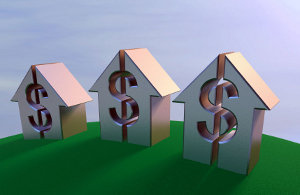6 Helpful Tips for Getting a Mortgage While Self-Employed
By Michael Zuren, PhD Updated on 7/27/2017 If you are self-employed and have excellent credit and a significant down payment you still may not qualify for a mortgage due to recent changes in industry regulations.
If you are self-employed and have excellent credit and a significant down payment you still may not qualify for a mortgage due to recent changes in industry regulations.
Most lenders consider the self-employed to be riskier than their W-2 wage earning counterparts.
You're considered self-employed if you own 25% or more of a business. At a minimum, you will need your last two years of tax returns and most likely a year-to-date profit and loss statement to document your income.
To qualify for a mortgage as a self-employed worker, keep the following in mind:
1. Flesh out your credit score.
Depending on the loan type you intend to qualify for you will need to meet the minimum credit score standards. Federal Housing Administration loans (FHA) typically require at least a minimum 620 middle credit score whereas conventional loans typically require a minimum 660 middle credit score.
It is always a good idea to check your credit report before entering into a contract to buy a house and correct any errors you find on your credit report.
2. Build a down payment.
FHA requires a minimum 3.5% down, and conventional financing requires a minimum 5% down payment. Although gift funds are acceptable for some or all of a down payment, using your funds will make you a better risk. In either case, a larger the down payment may be considered a compensating factor.
3. Show stable or increasing income.
Lenders will use your last two years of tax returns to calculate your income. They will review your tax schedules and add back depreciation, amortization/casualty loss, and depletion to your net profit or loss. The lender will also ask for a year-to-date profit and loss statement to verify your income is stable and not decreasing.
If your income is declining, a lender will likely use the worst case scenario as your qualifying income instead of your last two years' average earnings.
4. Contribute to reserves.
Most loans require two months or less of mortgage payments (principal & interest, taxes, insurance, and private mortgage insurance) left in the bank at the time of closing.
The greater amount of mortgage payment reserves you have in your bank the better risk you will be in the eyes of the lender.
5. Organize business and personal debts.
If you have debts that are paid directly through your business, you must have a separate business bank account to be able to prove with debts are paid through the business, thereby not counting them in your debt ratio.
Lenders will require a copy of the last 12 months of canceled checks to verify the debt is being paid directly out of the business account. Avoid any new business debt for the 12 month period before purchasing a house. New business debt (where you cannot provide 12 months of canceled checks from your business account) will likely be counted as personal debts by your lender.
6. Make sure your state recognizes your business.
Lenders will need to verify you have officially been in business for at least two years. A business license is typically required, but a letter from your CPA is often accepted.
If you are self-employed, you may have to prepare for years to purchase a house (qualify for a mortgage) by ensuring you show an acceptable profit on your tax returns and pay any business expenses directly through your business accounts.
When you feel you are ready to buy a house and qualify for a mortgage, it is always in your best interest to apply for and complete a full pre-approval before entering into a purchase agreement.
Make sure the lender is experienced with self-employed mortgages and has reviewed your tax returns, bank statements, and full credit report. Ask the lender to provide a fully underwritten pre-approval to eliminate any surprises after you enter into a purchase agreement.
A full pre-approval will not ensure a final approval, but it is the best guarantee you can get that you will receive funding for your new house.

Didn't find the answer you wanted? Ask one of your own.

Contributing Authors
Related Articles
Ask our community a question.
Searching Today's Rates...

Featured Lenders
Lisa Stepp
RBS Citizens
Clifton Park, NY
Cameron Burke
Vision One Mortgage
Huntington Beach, CA
Kat Whitman
Whitman Met, Inc.
Sacramento, CA





